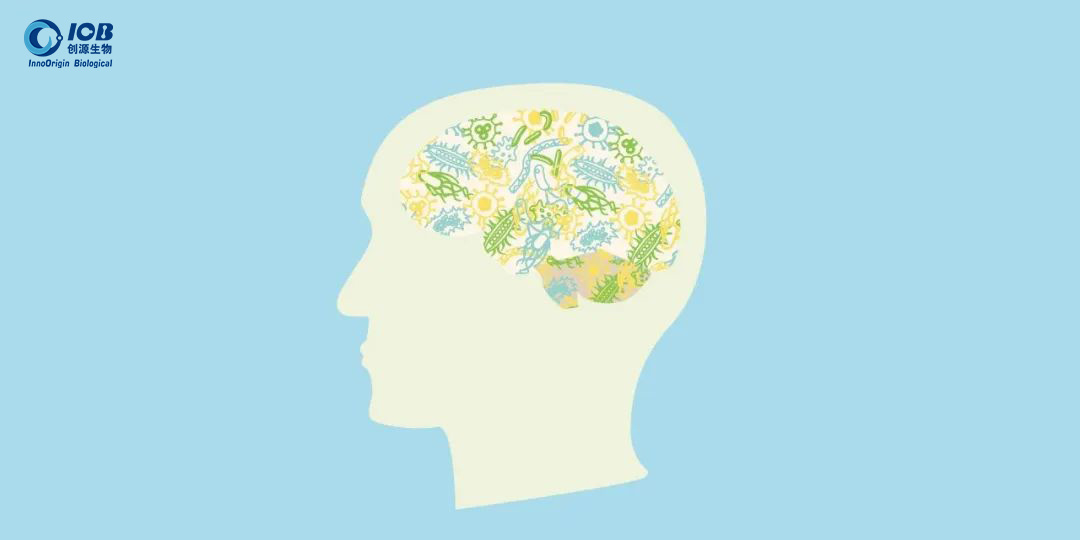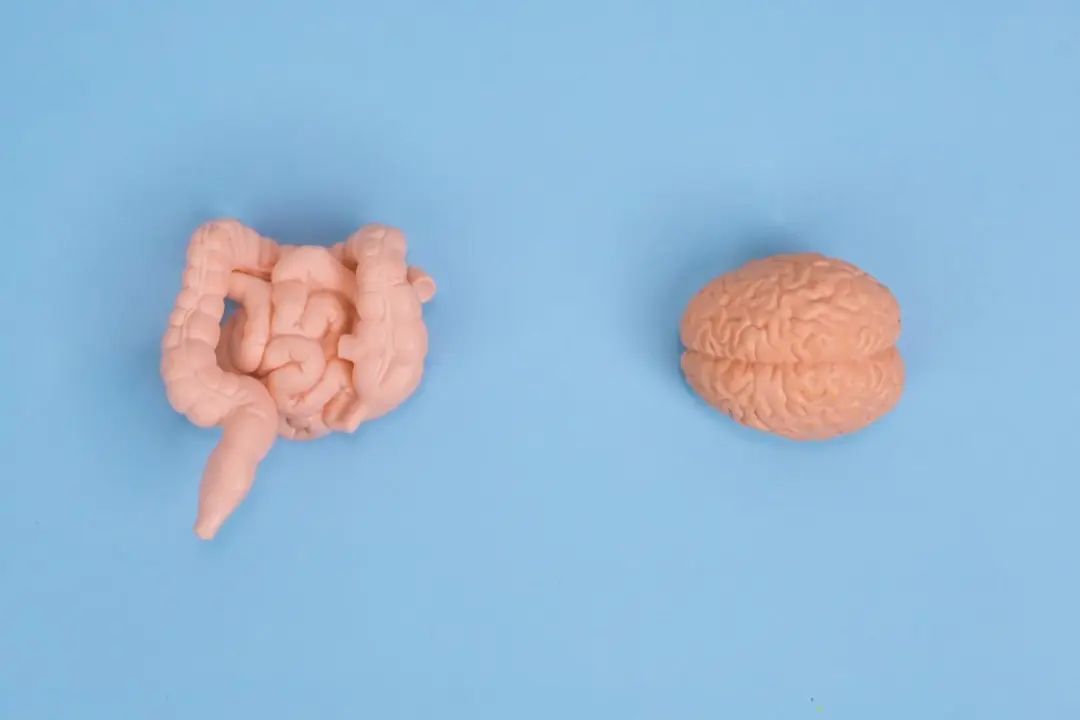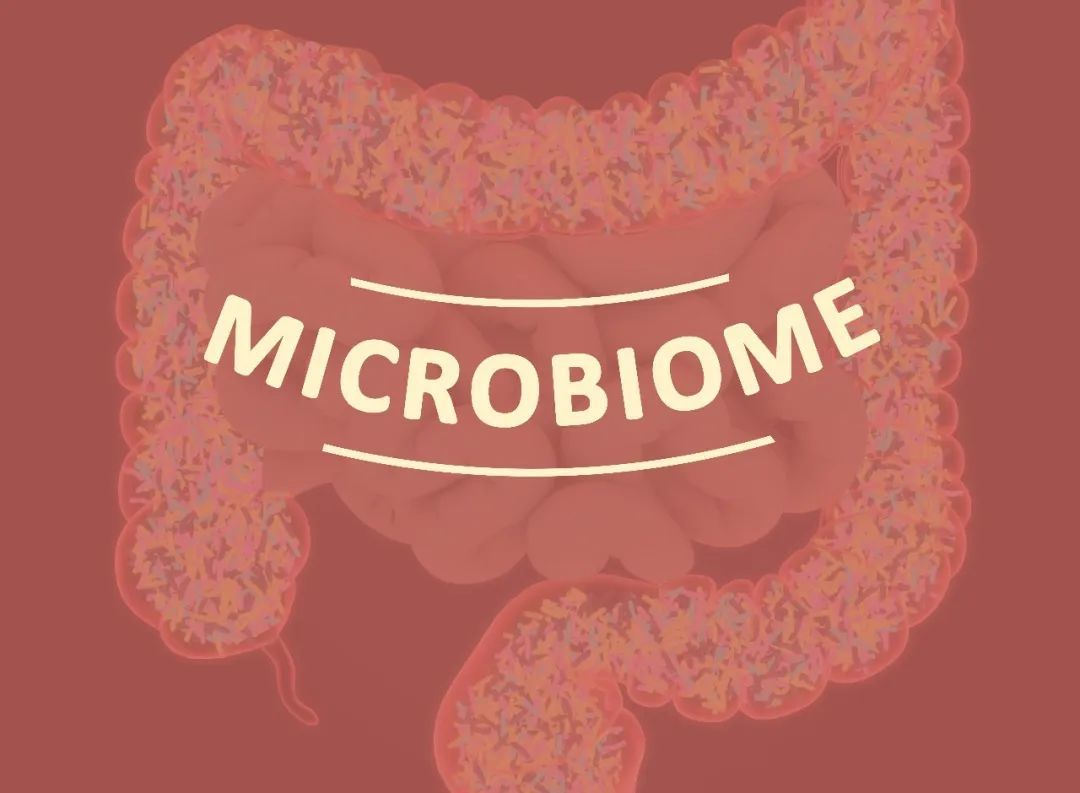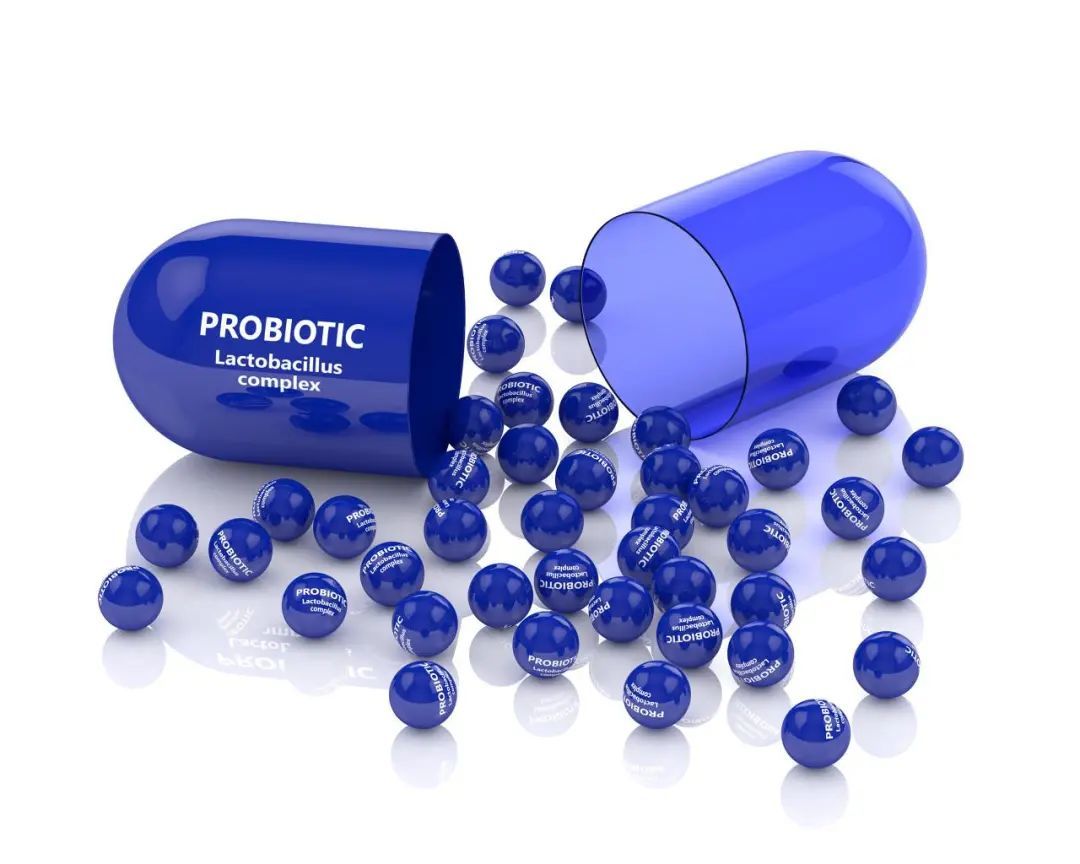All
- All
- Product Management
- News
- Introduction
- Enterprise outlets
- FAQ
- Enterprise Video
- Enterprise Atlas
The concept of the gut-brain axis is deepening, how can gastrointestinal health foods explore new possibilities?

Editor's Note
The gut-brain axis is one of the hottest research directions in the field of microbiomes. A series of studies in the past have shown that our gut microbiome can affect our brain health through various mechanisms. So, what does this mean for dietary supplements?
Today, we focus on the gut-brain axis together. We hope this article can provide some inspiration and help for industry professionals and readers.
Reduce Stress
One way to improve health by enhancing a person's quality of life is to reduce the stress in our lives. Stress can create a domino effect, leading a person to eat too much or too little, develop bad habits (such as smoking and drinking), reduce motivation for positive exercise, and generate impatience and anger that affect our interpersonal relationships.
According to Mintel's "2023 Global Consumer Trends" report, a survey of 2,000 U.S. internet users aged 18 and older found that 49% of respondents reported feeling stressed in the past year, 38% reported feeling anxious, 22% reported feeling mentally exhausted, and 20% reported feeling overwhelmed. In a survey of 1,537 British internet users aged 18 and older, 71% said that controlling diet and exercise is important for managing stress.
A balanced diet and an active lifestyle can have a significant impact on a person's mental health, and consumers are actively seeking help, looking for products that can assist them in achieving their health goals. Dietary supplements that support cognitive health and reduce stress can provide the help consumers are looking for, but a new approach targeting the gut-brain axis may be the future of stress and emotional support products.
AsNutritional Outlookreported earlier this year, products that support the microbiome are continuing to grow. As our understanding of the microbiome becomes more profound, related products are becoming increasingly complex, with many products attempting to achieve brain health by modulating the microbiome.
Developing products targeting the gut-brain axis may be an effective approach, as it can leverage consumers' desire to improve mental health while also capitalizing on the growth momentum of microbiome-supporting products.

Gut-Brain Axis
The idea that brain health is interconnected with digestive system health has been proposed for many years. Although our understanding of the mechanisms behind these connections remains limited, knowledge on this topic is rapidly growing as researchers work to solve this puzzle.
The gut-brain axis is defined as the interaction between the enteric nervous system (ENS) present in the gastrointestinal (GI) tract and the central nervous system. The ENS is even referred to as the second brain because it contains as many neurons as the spinal cord, participates in regulating basic gut functions, and has neurotransmitters and signaling molecules similar to those in the brain.
One key neural pathway for bidirectional communication between the gut and the brain is the vagus nerve, which influences the hypothalamic-pituitary-adrenal (HPA) axis. The HPA axis is responsible for our adaptive stress response. Another pathway for gut-brain communication includes the direct or indirect transmission of signals through chemical messengers (such as microbial metabolites), hormones, or neurotransmitters.
Metabolites such as short-chain fatty acids (SCFAs) are crucial for gastrointestinal health due to their roles in maintaining the integrity of the gut barrier, promoting mucus production, and inhibiting inflammation, and they also play a role in the gut-brain axis. For example, SCFAs can control the production of peptides through enteroendocrine cells, thereby stimulating the synthesis of serotonin from the gut.
Many bacteria in the gastrointestinal tract, such as Lactobacillus, Bifidobacterium, Bacillus, Escherichia, and yeast, also influence the production of neurotransmitters that can control our cognitive functions. In other words, these bacteria are involved in the production of neurotransmitters such as gamma-aminobutyric acid (GABA), acetylcholine, norepinephrine, dopamine, and serotonin.

Gut Microbiome and Mental Health
We are all familiar with the feeling of being "tense and anxious," and under high stress, we have all experienced gastrointestinal discomfort to some extent. Therefore, you can personally feel that our gut and brain are interconnected. However, truly understanding these complex connections is a challenging task, especially when they are related to serious illnesses.
Researchers have found correlations between our gut microbiome and neurological diseases. Recently, a large-scale study on the relationship between the gut microbiome and depression was published inNature Communications.This study investigated the relationship between the diversity and composition of the fecal microbiome of 2,593 individuals and depressive symptoms. Researchers identified 13 microbial groups associated with depressive symptoms, including 12 genera and one family.
Researchers found thatSellimonas, Eggerthella, Lachnoclostridium, and Hungatella were more abundant in subjects with more severe depressive symptoms. In contrast, bacteria such as rare Gemella and Faecalibacterium were less abundant in subjects with more severe depressive symptoms. Interestingly, these microbes were found to be associated with the production of butyrate (a type of SCFA), and rare Gemella was more abundant in omega-3-rich diets. Omega-3 is also believed to be beneficial for cognitive health.The study also found associations between Eubacterium ventriosum, Lachnospiraceae UCG001, and Ruminococcus gauvreauii and depression.For example, it was positively correlated with depressive symptoms, while microbes fromwere found to increase in inflammatory diseases. After dysbiosis in the gut, it was also observed thatLachnoclostridium和Hungatella在抑郁症状较重的受试者中含量更高。而罕见小球菌属和粪球菌属等细菌则在抑郁症状较重的受试者中的含量却较少,有意思的是,这些微生物被发现与丁酸盐的产生(一种SCFA)有关,且罕见小球菌属在富含omega-3的饮食中更为丰富。Omega-3也被认为对认知健康有好处。
该研究还发现Sellimonas, Eggerthella, Lachnoclostridium, and Hungatella were more abundant in subjects with more severe depressive symptoms. In contrast, bacteria such as rare Gemella and Faecalibacterium were less abundant in subjects with more severe depressive symptoms. Interestingly, these microbes were found to be associated with the production of butyrate (a type of SCFA), and rare Gemella was more abundant in omega-3-rich diets. Omega-3 is also believed to be beneficial for cognitive health.、Lachnoclostridium、Hungatella、Eubacterium ventriosum、Lachnospiraceae UCG001和Ruminococcus gauvreauii与抑郁症之间的关联。
例如,Sellimonas, Eggerthella, Lachnoclostridium, and Hungatella were more abundant in subjects with more severe depressive symptoms. In contrast, bacteria such as rare Gemella and Faecalibacterium were less abundant in subjects with more severe depressive symptoms. Interestingly, these microbes were found to be associated with the production of butyrate (a type of SCFA), and rare Gemella was more abundant in omega-3-rich diets. Omega-3 is also believed to be beneficial for cognitive health.与抑郁症状呈正相关,而来自Sellimonas, Eggerthella, Lachnoclostridium, and Hungatella were more abundant in subjects with more severe depressive symptoms. In contrast, bacteria such as rare Gemella and Faecalibacterium were less abundant in subjects with more severe depressive symptoms. Interestingly, these microbes were found to be associated with the production of butyrate (a type of SCFA), and rare Gemella was more abundant in omega-3-rich diets. Omega-3 is also believed to be beneficial for cognitive health.的微生物被发现在炎症性疾病中会增加。在肠道菌群失调后,也观察到Sellimonas, Eggerthella, Lachnoclostridium, and Hungatella were more abundant in subjects with more severe depressive symptoms. In contrast, bacteria such as rare Gemella and Faecalibacterium were less abundant in subjects with more severe depressive symptoms. Interestingly, these microbes were found to be associated with the production of butyrate (a type of SCFA), and rare Gemella was more abundant in omega-3-rich diets. Omega-3 is also believed to be beneficial for cognitive health.Higher abundance.
For example, research has found that as depressive symptoms increase,Eubacterium ventriosumthe abundance will decrease. Previous animal studies have shown that it can be depleted in mice after traumatic brain injury. This is consistent, as depression is one of the known symptoms of traumatic brain injury.
Most of the microorganisms found in the study are related to the synthesis of glutamate and butyrate. Researchers explain that glutamate is widely distributed in the brain and is a major excitatory neurotransmitter known to be involved in the regulation of neuroplasticity, learning, and memory. In previous studies, low levels of glutamate have been associated with mood and mental disorders, and increasing glutamate levels is becoming a new therapeutic target for treating depression.
Butyrate is a short-chain fatty acid (SCFA) that can regulate the biological responses of host gastrointestinal health and can influence the gut-brain axis by enhancing cholinergic neurons through 'epigenetic mechanisms', while also being able to cross the blood-brain barrier, activating the vagus nerve and hypothalamus.
Other studies have found an association between changes in the gut microbiome and various neurodegenerative diseases such as Parkinson's disease, Alzheimer's disease, and amyotrophic lateral sclerosis (ALS). For example, compared to healthy controls, the levels of butyrate-producing bacteria in Alzheimer's patients are lower, with lower SCFA levels.

Regulating the microbiome
While consumers should not expect to treat neurological diseases through dietary supplements, these studies demonstrate the relationship between our brains and microbiomes, providing a potential solution for stressed consumers. Consumers are already looking for ways to alleviate stress through dietary interventions, and dietary supplements may be a useful tool to achieve this goal.
Consumers hoping to address brain health issues through the gut are turning to probiotics. Some probiotic manufacturers have begun selling strains that support brain health and have undergone clinical validation. For example, Howaru Lacticaseibacillus paracasei (Lacticaseibacillus paracasei) Lpc-37 is used to relieve stress. A study found that compared to those taking a placebo, 120 subjects taking this probiotic for 5 weeks significantly alleviated fatigue and reduced stress. This effect was particularly pronounced in women, with researchers noting that women experienced more stress and had more disrupted sleep compared to men in the study.
Another probiotic strain comes from the company Laman. A recent study found that compared to a placebo, Lacticaseibacillus rhamnosus (Lacticaseibacillus rhamnosus) HA-114 had a significant impact on dietary behavior and emotional factors. In this study, 152 adults underwent dietary interventions with either a placebo or probiotic strain added. Due to the dietary intervention, both groups lost weight, but only the probiotic group showed a decrease in binge-eating tendencies and food cravings, exhibiting greater self-control. Additionally, Laman recently announced that its Rosell Microbiome and Probiotic Research Institute received $1.6 million in research funding from the Weston family to study the effects of this probiotic strain on ALS.
A probiotic mixture from AB-Biotics—Pediococcus acidilactici (Pediococcus acidilactici) KABP 021 (CECT 7483), Lactiplantibacillus plantarum (Lactiplantibacillus plantarum) KABP 022 (CECT 7484) and Lactiplantibacillus KABP 023 (CECT 7485), has been found to help people with stress-related stomach discomfort.
Although this study was small, the results indicated that subjects taking the probiotic mixture showed improved mental health scores, and issues related to diarrhea were significantly improved, enhancing overall work performance, including reduced absenteeism and increased work efficiency. Researchers observed that the improvement in stomach issues was highly correlated with an increase in the abundance of Faecalibacterium (a bacterium that produces butyrate).
These studies suggest that using probiotics to regulate the gut microbiome may have a tangible impact on people's mental health and could potentially improve health in other ways. For example, weight management may be a controversial category, but providing a product that supports healthy eating and exercise rather than restricting diet could truly be a game changer, especially considering how many people use food to comfort themselves under stress.
Similarly, stress-induced gastrointestinal issues can have a real negative impact on our lives and work, further exacerbating the stress people experience. If probiotics can help alleviate stress and related issues, it could have a significant positive impact on consumers.
Prebiotics may also help support the gut-brain axis. Prebiotics are defined as substances that can be selectively utilized by the microbiota in the host and converted into beneficial substances for host health. Prebiotics may help produce SCFAs like butyrate, which we have identified as having many benefits, including potential brain health benefits. SCFAs produced by microorganisms may also influence the expression of brain-derived neurotrophic factor (BDNF), which in turn supports the growth of new neurons and the survival of existing neurons.
A recent preclinical study found that supplementation with a patented galacto-oligosaccharide (GOS) ingredient from Clasado Biosciences can reduce harmful metabolites while increasing healthy metabolites like butyrate. While there may not yet be enough research directly linking prebiotics to the gut-brain axis, we may clarify their relationship with our brains in the future.
Ingredients that can benefit the gut-brain axis may not only include prebiotics and probiotics. Herbs known to support brain health may actually have gut-regulating functions. For example, Portulaca oleracea and South African Sceletium have been shown in vitro to increase the bacteria that produce butyrate and significantly alter the composition of the gut microbiome. Of course, we still need more research to understand this relationship, but in the future, the gut-brain axis may be another way to convey the benefits of herbs that support brain health.
Concepts like the gut-brain axis provide a framework for understanding the interconnections of our bodily systems, which is appealing to consumers seeking a more holistic approach to health.
Stress is a common experience that we all try to avoid or reduce in our daily lives; unfortunately, the ways people seek to relieve stress are not always healthy or productive. Dietary supplements can offer a safer way to enhance people's quality of life.
In fact, products like prebiotics and probiotics that can support the microbiome are likely part of consumers' existing supplement regimens, making products that support the gut-brain axis easier to sell. Researchers are still studying the details of the relationship between the gut and the brain, but more and more people are accepting this concept, and research findings are moving into the mainstream audience. For example, findings published in Nature have been reprinted and reported by The Washington Post.
Although the gut-brain axis may not yet be mainstream, it may be time to start developing products targeting the gut-brain axis, gaining a foothold in this category early while raising consumer awareness and enhancing consumer education.
References:
The article is reprinted from the Gut Industry WeChat public account, with reprint authorization obtained.
https://www.nutritionaloutlook.com/view/the-gut-brain-axis-and-what-it-means-for-the-brain-health-category

Related News


